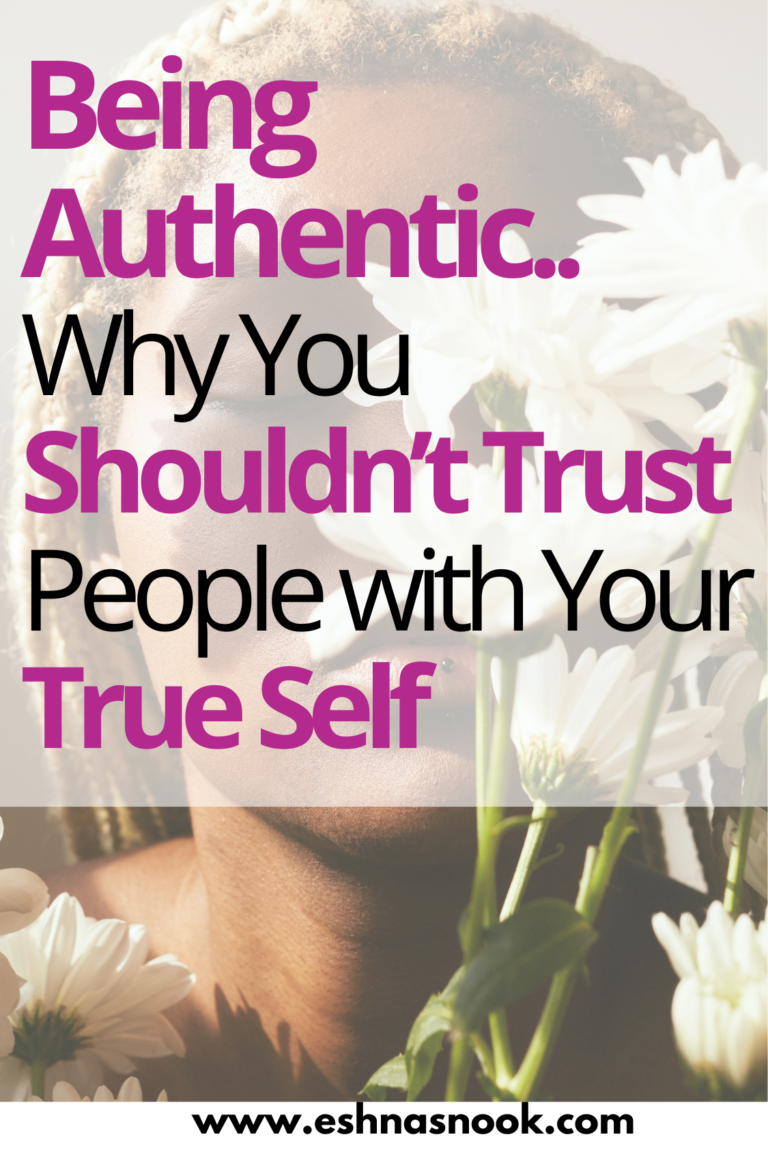Being Authentic: Not Everyone Deserves to Know the Real You
Trusting others is a natural instinct and being authentic is often seen as a good thing, especially when you’re looking for deep, meaningful connections.
We often hear that being authentic is the key to genuine relationships.
But what happens when the person you trust isn’t ready to accept the real you?
It’s tough to realize that not everyone is ready or capable of handling the truth of who you are.
Acceptance as an Illusion
It’s easy to think that being authentic will lead to acceptance and understanding from those you care about.
But that’s not always the case.
Some people may say they want you to be open and honest, but when they see the real you, they might not be prepared for it.
This can be surprising.
You might expect your honesty to bring you closer to someone, only to find it creates distance instead.
When someone encourages you to be yourself but then pulls away, it’s a painful reminder that not everyone will appreciate or accept you as you are.
This can make you question your worth and wonder if being yourself is somehow wrong.
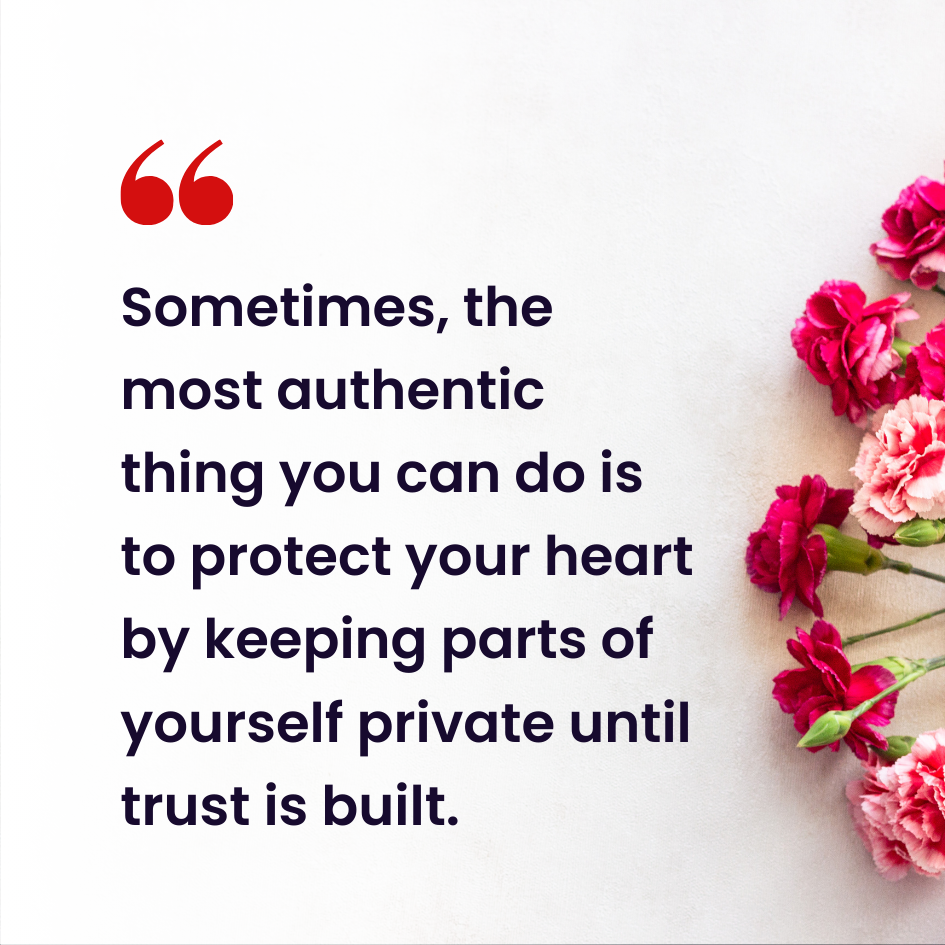
Why No Oversharing
Sharing too much with someone who isn’t ready or willing to accept your true self can have serious consequences.
It can lead to feelings of rejection, hurt, and self-doubt.
When you trust someone and show your vulnerabilities, only to have them react negatively, it’s easy to start doubting yourself.
You might begin to think there’s something wrong with you or that you made a mistake by being open.
These doubts can wear down your self-esteem and make you hesitant to trust others in the future.
You might start to build walls around yourself, hiding your true thoughts and feelings out of fear of being rejected again.
While this self-protective behavior is understandable, it can make it harder to form genuine connections with others.
Please do not forget to click here and follow me on Pinterest !!
Why Facades Are Sometimes Necessary
While being authentic is important, there are times when it’s necessary to protect yourself by maintaining a facade.
This doesn’t mean you’re being fake; it means you’re being cautious.
Not everyone deserves to see the real you, especially if they haven’t earned your trust or shown they can handle your truth.
Think of a facade as a protective barrier.
It allows you to interact with others while keeping your most vulnerable self safe.
You can choose what to share and what to keep private, revealing more of yourself only when you’re confident that the other person is trustworthy and emotionally mature.
Maintaining a facade isn’t about deceiving others; it’s about protecting yourself.
It’s about recognizing that not everyone will appreciate your authenticity, and sometimes it’s better to hold back until you’re sure someone can accept you as you are.

Learning to Trust Yourself Again
If you’ve been hurt by someone’s inability to accept your true self, it can take time to rebuild your confidence.
You might feel shaken, questioning whether you should have trusted them in the first place.
But it’s important to remember that their reaction doesn’t define your worth.
Trusting yourself means knowing that you are enough just as you are, even if others don’t see it.
It’s about understanding that everyone has their own limitations, and their inability to accept you says more about them than about you.
Rebuilding trust in yourself is difficult but achievable.
It involves reminding yourself that just because one person didn’t accept you doesn’t mean you’re unworthy of acceptance.
You are still valuable, still worthy of love and respect, no matter how others respond to your authenticity.
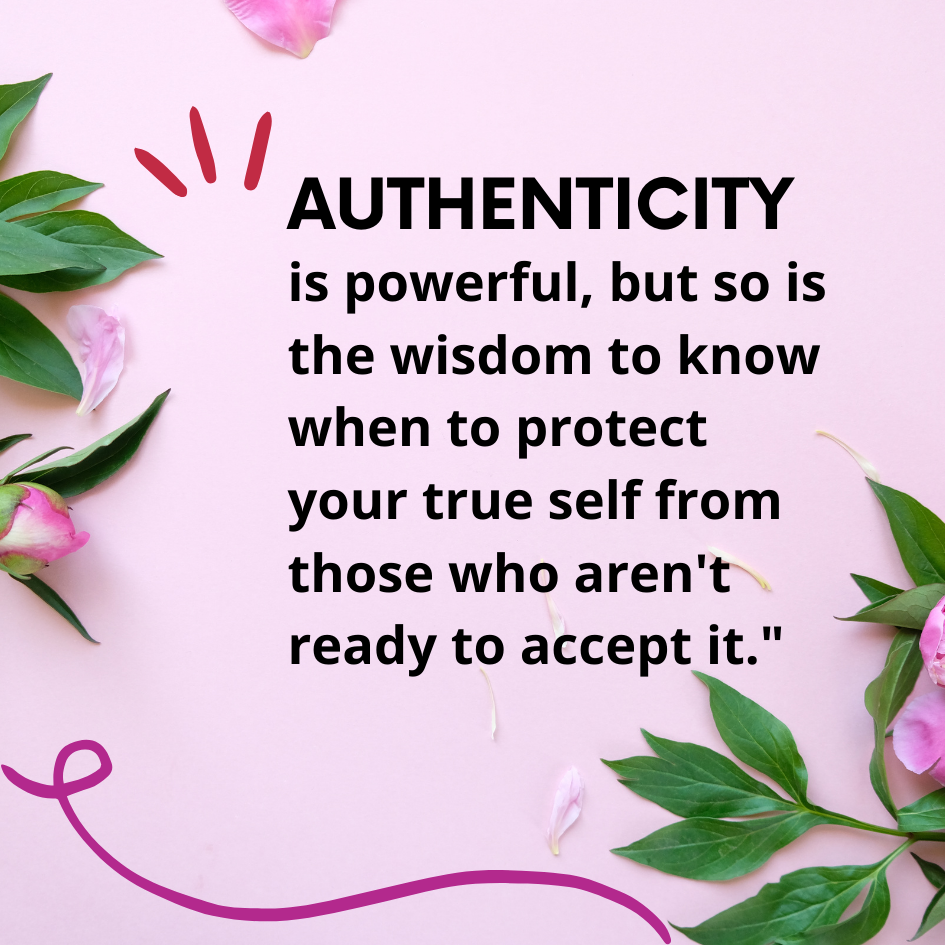
Balancing Authenticity and Over-Sharing
Finding the right balance between being authentic and oversharing is important.
It’s not about pretending to be someone you’re not, but about being careful with your trust and knowing when to share and when to hold back.
Here are some ways to find this balance:
1.Know Who You’re Sharing With:
Before showing your true self, consider who you’re sharing with. Are they trustworthy? Do they have the emotional maturity to handle your authenticity? If you’re unsure, it might be better to keep some things private.
2. Take It Slow:
You don’t have to share everything about yourself all at once. Build trust gradually. Start by sharing smaller, less vulnerable parts of yourself, and see how the other person responds before revealing more.
3. Trust Your Instincts:
Listen to your gut. If something doesn’t feel right or if you’re hesitant to share, trust that feeling. It’s okay to hold back until you feel more comfortable.
4. Set Boundaries:
Clearly define what you’re willing to share and what you want to keep private. Boundaries are essential for protecting your emotional well-being.
5. Practice Self-Compassion:
Be kind to yourself. If someone doesn’t accept you, it doesn’t mean there’s something wrong with you. Remind yourself that you are enough, just as you are.
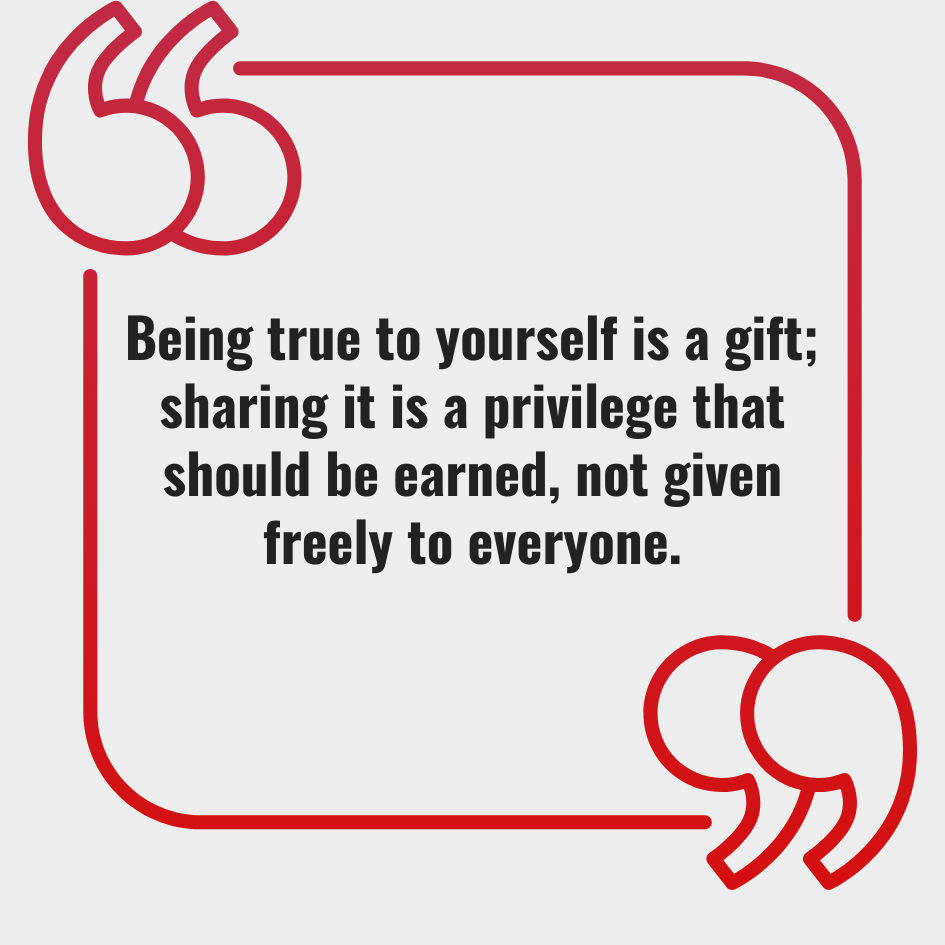
Not everyone is ready or willing to see the real you, and that’s okay.
It doesn’t mean you need to change who you are or hide your true self entirely. Instead, be mindful of who you trust and when you choose to reveal your true self.
Trust is precious, and it’s important to use it wisely.
While being authentic is essential, it’s equally important to protect yourself from those who aren’t prepared to accept you as you are.
By being selective with your trust, you can maintain your self-worth and protect your emotional well-being.
You are enough, just as you are.
The right people will appreciate your being authentic and those who don’t aren’t worth your trust.
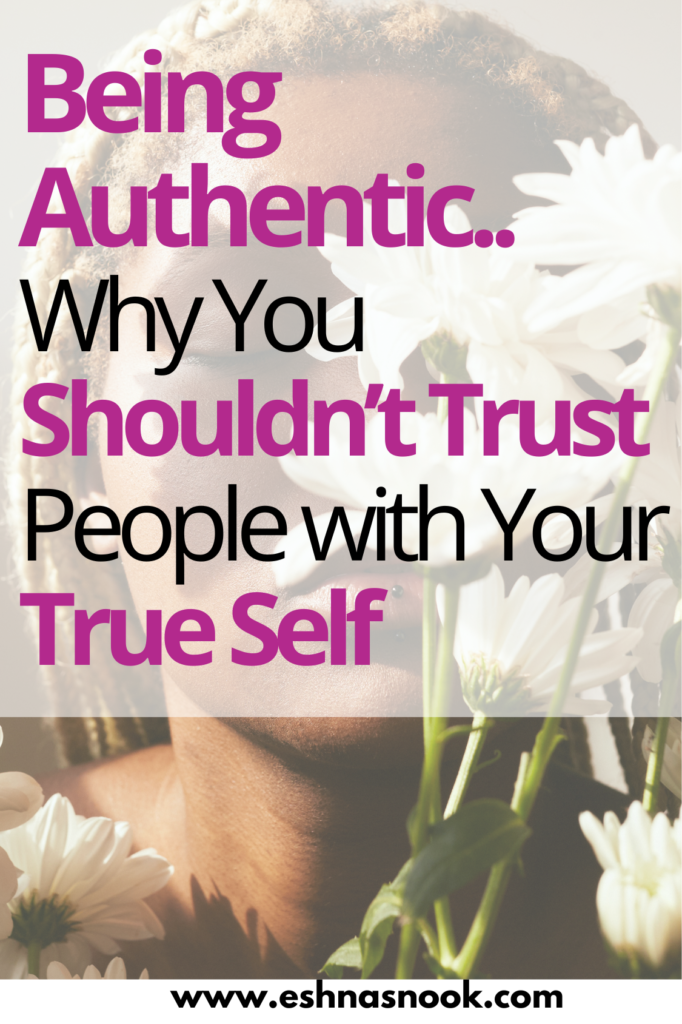
When friends share posts, they are telling Google that the site is worth sharing with
others, and that helps build my small blog business.
Thank you for sharing !!

